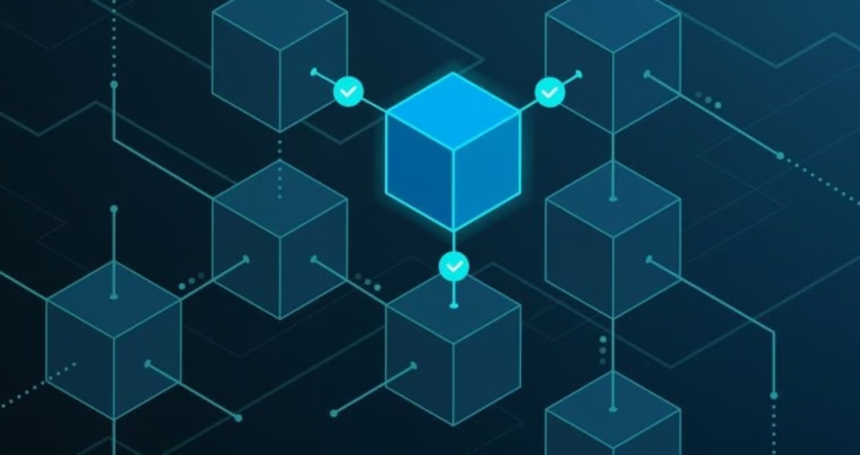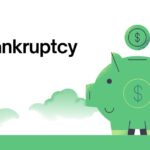Blockchain is a revolutionary technology that underpins cryptocurrencies like Bitcoin and Ethereum. It is essentially a distributed ledger system that securely stores and records transactions across a network of computers. Blockchain’s decentralized nature, security, and transparency have made it an ideal foundation for digital currencies, as well as a variety of other applications.
Key Takeaways
- Blockchain is a decentralized digital ledger that records transactions securely.
- Each “block” in the blockchain contains a set of transactions, and the blocks are linked in chronological order.
- Blockchain technology is not limited to cryptocurrencies; it has potential applications in fields like supply chain management, healthcare, and finance.
- Example: When Alice sends Bitcoin to Bob, the transaction is verified by miners and added as a new block on the blockchain, ensuring the transaction is recorded securely and publicly.
What Is Blockchain?
At its core, blockchain is a system of recording information in a way that makes it difficult or impossible to alter, hack, or cheat the system. Unlike traditional centralized databases, where a single entity controls and manages the data, blockchain is decentralized, meaning that data is distributed across a network of computers (also known as nodes).
Each transaction is grouped into a “block,” which is a digital container of transaction data. Once a block is complete, it is added to the chain of previous blocks, creating a “blockchain.” Each block contains a cryptographic hash of the previous block, making it virtually impossible to tamper with past data without altering every subsequent block, which requires the consensus of the majority of network participants.
How Blockchain Works
Blockchain technology relies on the concept of consensus to verify transactions. Here’s a simplified breakdown of how a blockchain transaction works:
- Initiating a Transaction: A user, such as Alice, wants to send Bitcoin to Bob. She creates a transaction request, which is broadcasted to the network.
- Validation by Miners: The network of miners (or validators) competes to validate the transaction. To do this, they must solve a complex cryptographic puzzle that requires significant computational power (in Proof of Work or other consensus mechanisms).
- Creating a Block: Once the puzzle is solved, the transaction is grouped with other transactions to form a new block. The block is then added to the blockchain and broadcasted across the network.
- Finality: After the block is added to the blockchain, the transaction is considered final, and both Alice and Bob’s wallets are updated accordingly. The decentralized nature of the network ensures that no central authority can reverse the transaction.
Blockchain Applications Beyond Cryptocurrencies
While blockchain is best known for its role in cryptocurrencies, its applications extend far beyond digital currencies. Here are a few examples of how blockchain can be used:
- Supply Chain Management: Blockchain can be used to track goods as they move through a supply chain. It allows for greater transparency, traceability, and accountability. For example, a company can use blockchain to track the origin of a product, ensuring its authenticity and reducing fraud.
- Healthcare: Blockchain can store and manage patient health records in a secure and decentralized manner. With proper encryption, patients can control who has access to their health data, increasing privacy and security.
- Voting Systems: Blockchain could be used to create secure, tamper-proof voting systems. Each vote would be recorded as a transaction on the blockchain, making it impossible to alter or hack the voting process.
- Smart Contracts: Blockchain allows for the creation of smart contracts, which are self-executing contracts where the terms of the agreement are written directly into code. These contracts automatically execute when predefined conditions are met, making them ideal for industries like real estate, legal agreements, and insurance.
Example of Blockchain in Action: Bitcoin
One of the most famous use cases of blockchain is Bitcoin, the first decentralized cryptocurrency. Each Bitcoin transaction is recorded on the Bitcoin blockchain, where miners validate and confirm transactions. Let’s look at an example:
Alice wants to send 1 Bitcoin to Bob. She creates a transaction and broadcasts it to the network. Miners compete to validate the transaction by solving a cryptographic puzzle. Once the transaction is confirmed, it is included in a new block and added to the Bitcoin blockchain. The transaction is now publicly recorded and cannot be altered.
Benefits of Blockchain Technology
- Decentralization: Blockchain eliminates the need for a central authority, making it more secure and less prone to corruption.
- Transparency: All transactions on the blockchain are visible to all participants. This transparency reduces the chances of fraud and enhances trust in the system.
- Security: Blockchain’s cryptographic nature ensures that once data is recorded, it cannot be tampered with. The use of hashes and digital signatures makes it nearly impossible for malicious actors to alter blockchain records.
- Cost Efficiency: Blockchain reduces the need for intermediaries, such as banks, in financial transactions. This can lead to significant cost savings, especially for cross-border payments.
Challenges of Blockchain Technology
Despite its numerous benefits, blockchain is not without its challenges:
- Scalability: As more transactions are added to the blockchain, the network can become congested, resulting in higher fees and slower processing times. Several blockchain projects, like Ethereum 2.0, are working to address these scalability issues.
- Energy Consumption: Bitcoin mining, which uses the Proof of Work mechanism, is energy-intensive. This has raised concerns about its environmental impact.
- Regulation: The decentralized and anonymous nature of blockchain transactions can make it difficult for regulators to track illicit activity, such as money laundering and fraud.
The Future of Blockchain
Blockchain technology is still in its infancy, but its potential to disrupt industries is vast. As the technology matures, we can expect to see it adopted in areas such as:
- Financial Services: Blockchain will continue to transform banking, payments, and asset management.
- Internet of Things (IoT): Blockchain can improve security and interoperability for IoT devices by enabling secure data sharing and device-to-device transactions.
- Governance: Governments may use blockchain for secure voting systems and transparent public records management.
Blockchain is a groundbreaking technology that is reshaping industries by offering a secure, transparent, and decentralized way to store and transfer data. While it is most commonly associated with cryptocurrencies, its applications extend to various sectors, including supply chain management, healthcare, and finance. Understanding how blockchain works and its potential can help businesses and individuals leverage this technology for growth and innovation.





